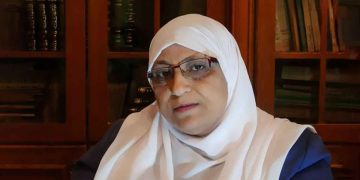Egyptian authorities’ abuse of human rights persisted throughout 2015, with wide-scale repression expanding indiscriminately to include an increasing number of Egyptians regardless of age and gender.
At least 267 people were extrajudicially executed by Egyptian security forces in various parts of Egypt (excluding north and South Sinai).
Egyptian police use of lethal force to crush peaceful protests resulted in the death of 63 people, including 6 minors and 3 women. Another 46 Egyptians were extrajudically executed, while 159 detainees died due to medical neglect, torture or being held under inhumane conditions by corrupt prison officials.
At least 38 people were killed in mysterious circumstances for allegedly committing terrorist acts, despite the lack of any evidence to support these claims. Authorities refused to conduct any investigations into the circumstances surrounding their death.
The number of those arrested for political reasons during 2015 stood at a staggering 17840- including 235 minors and 73 women- of whom 11877 were arrested for allegedly belonging to 171 terrorist cells, according to a ministry of interior statement.
These massive arrests put a lot of strain on Egypt’s prison system, but instead of revisiting its policies of indiscriminate arrests, authorities opened three new prisons in 2015; Giza Central Prison, 15 May Central Prison, and Torra 2 (maximum security) Prison. The Egyptian government also approved plans to establish three more prisons in various governorates: Ennahda Prison in Giza, Assyut Central Prison and Damietta Central Prison.
The judiciary wassimilarly involved in human rights abuses in Egypt. Trials of political opponents lacked the most basic standards of due process, fairness and transparency. Egyptian judges issued more than 660 verdicts against political opponents, of which 80 were issued by military judges and 580 by various civilian courts. The number of political opponents put on trial exceeded 8200 people, including 6417who were sentenced to various prison terms. Only 1796 people were acquitted. Prison terms were as follows:
- 1978were sentenced to life in prison
- 1147were sentenced to a maximum of three years
- 1394were sentenced to between 3-5 years
- 1284were sentenced to five years
Courts ordered 208 people to pay fines ranging between 5000 Egyptian Pounds and 200,000 Pounds.
Egyptian courts sentenced 395 people to death in 2015, including 12 individuals who were tried before military courts. Seven Egyptians were executed after they exhausted all avenues of appeal. Those executed are Mahmoud Ramadan Abdulnabi, who was hanged on 7 March 2015, and six others, convicted for their alleged role in the case known as Arab Cherkess, and were hanged on 18 May 2015.
A review of army operations in Sinai during 2015 reveals that at least 1600 people were killed by the army during alleged armed confrontations or as a result of indiscriminate shootouts. The army also arrested 2424 people, including 421 the army alleged were wanted in security-related cases and 2003 individuals suspected of involvement in cases the army refused to make public. The army burnt 744 Bedouin tents, destroyed 400 vehicles and 1004 motorcycles, in addition to razing 23 farms and 16 acres of land.
The Egyptian government passed a decree ordering the evacuation of the border area with Gaza to set up a buffer zone. The first phase was launched in October 2014 in a 500-metre wide area and included the destruction of 837 homes owned by 1150 families. The second phase started in March 2015 and included the destruction of 1044 houses in a 500-metre wide area.
The Egyptian government decided to launch the third phase in April 2015 over a 2000-metre area inhabited by hundreds of families living in 1220 homes. The Egyptian army began flooding the buffer zone between Gaza and Egypt in September, causing wide-spread damage to underground water wells.
Despite the gravity of these crimes, authorities refused to launch any investigations into the crimes of the army nor was a single officer punished for these human rights abuses. Authorities have failed to produce a single shred of evidence that would prove those killed or arrested were involved in terrorist activities. The army continued to use heavy artillery and lethal weapons against civilians and their homes in Sinai.
Arab Organisation for Human Rights in the UK (AOHR UK) sent many letters and complaints to Egyptian authorities regarding 393 cases involving human rights abuses. The authorities failed to respond to any of these complaints with the exception of a few cases where abuses were stopped, but no official investigations were launched to bring those responsible to justice.
It is becoming increasingly difficult to document all cases of human rights abuses in Egypt in light of the scarcity of information and the climate of fear that makes most victims reluctant to come forward. Any attempt by human rights organisation or the media to bring these facts to light provokes the wrath of the authorities and accusations of supporting terrorism under the new Anti-Terror legislation passed in Egypt.
There has never been a more desperate need for highlighting these truths and working hard to expose the abuses perpetrated by the Egyptian regime in order to compel the international community to face up to its responsibilities towards the Egyptian people. Victims must see justice prevail by ending the policy of acting with total impunity.





























